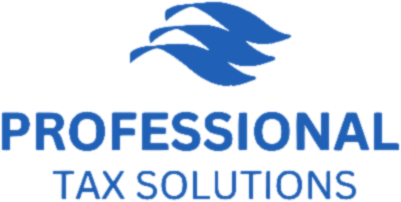ax focused retirement planning you can act on
Professional Tax Solutions helps clients in Grand Blanc, Traverse City, and the Grand Traverse region understand how withdrawals, Social Security, and investments affect taxes. We look at brackets, credits, and timing so income lasts and surprises are limited. Many clients connect this work to tax planning during the year and then move into tax preparation when forms arrive.
Strategies that set up the first year well
We review contribution limits, evaluate Roth conversions in lower income years, and map a timeline for starting Social Security. If you expect a move, sale of a property, or a change in work status, we model how that shifts your Michigan and city taxes so the first year of retirement is predictable.
After You Retire
Manage RMDs, benefits, and cash flow
We coordinate required minimum distributions, pension options, and the mix of taxable and tax free withdrawals. We also watch Medicare IRMAA thresholds and how investment income stacks with other sources. If you support a church or charity, we discuss qualified charitable distributions that may reduce tax on IRA withdrawals.
Decisions today that simplify tomorrow
We explain how beneficiary choices, inherited IRAs, and timing of gifts can change tax outcomes. If attorneys or financial advisors are involved, Professional Tax Solutions coordinates the tax pieces so the plan is consistent.
At what age should I start retirement tax planning?
Start in your early 50s so there is time to shape savings, Roth strategies, and withdrawal sequencing before you retire. A focused review at 59½ is useful as penalty rules change, and another check at 62 to coordinate Social Security timing. Age 65 matters for Medicare and income thresholds, and 73 is the current starting point for most required minimum distributions. Professional Tax Solutions sets a simple timeline so each milestone has clear action items.
How are Social Security benefits taxed?
Federal taxation depends on your combined income. Up to 85 percent of benefits can be taxable when other income is higher. Michigan often treats Social Security more favorably than federal rules, but your total income and birth year affect the result. We test different filing ages and withdrawal mixes to see how much of each benefit is taxed and how it stacks with pensions, IRA withdrawals, and investment income.
What is a Roth conversion and when does it make sense?
A conversion moves money from a pre tax IRA to a Roth IRA, creating taxable income now for potential tax free withdrawals later. Conversions can make sense in lower income years, after retirement but before RMDs begin, or in years when deductions offset part of the tax cost. We check brackets, credits, and Medicare IRMAA thresholds, then model partial conversions over several years so the plan fits your goals.
How do state and city taxes change if I move from Grand Blanc to Traverse City?
Your Michigan state tax follows you, but city filings can change with residency and where income is earned. Moving from Genesee County to the Grand Traverse region may remove a city return if you no longer live or work in a city with its own tax. We update withholding, estimates, and address changes, then review how local rules affect your mix of pensions, IRA withdrawals, and part time work.
What records should I keep for RMDs and charitable gifts?
Keep year end IRA statements, RMD calculation worksheets, and proof of each distribution. If you use qualified charitable distributions from an IRA, retain the 1099-R and the acknowledgement letters from charities that show the dates and amounts. For other gifts, save receipts and notes on how assets were valued. Professional Tax Solutions provides a short annual checklist so everything is on file before we prepare your return.


